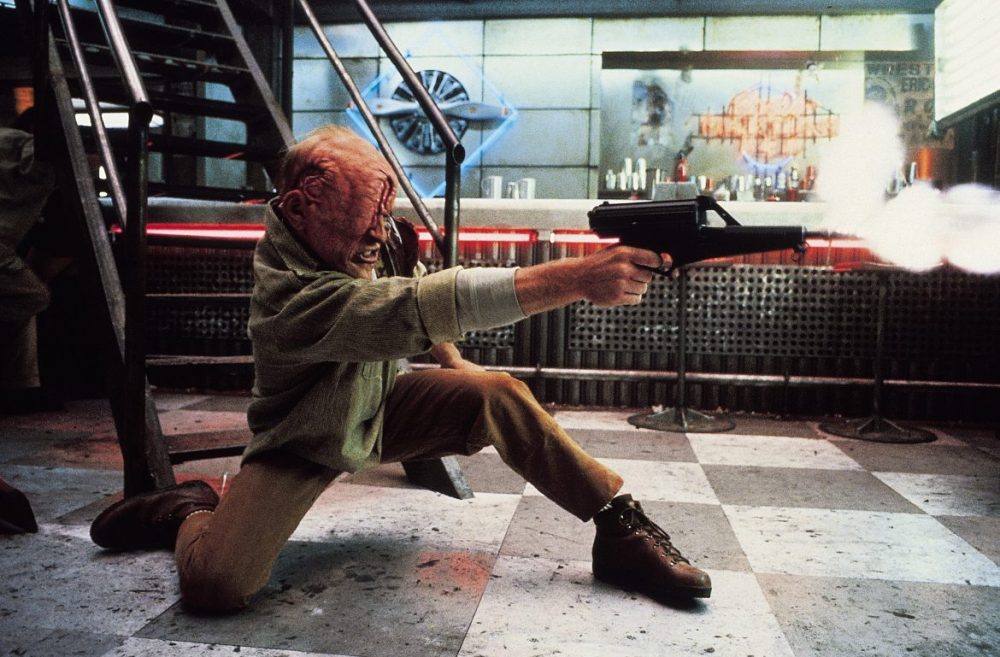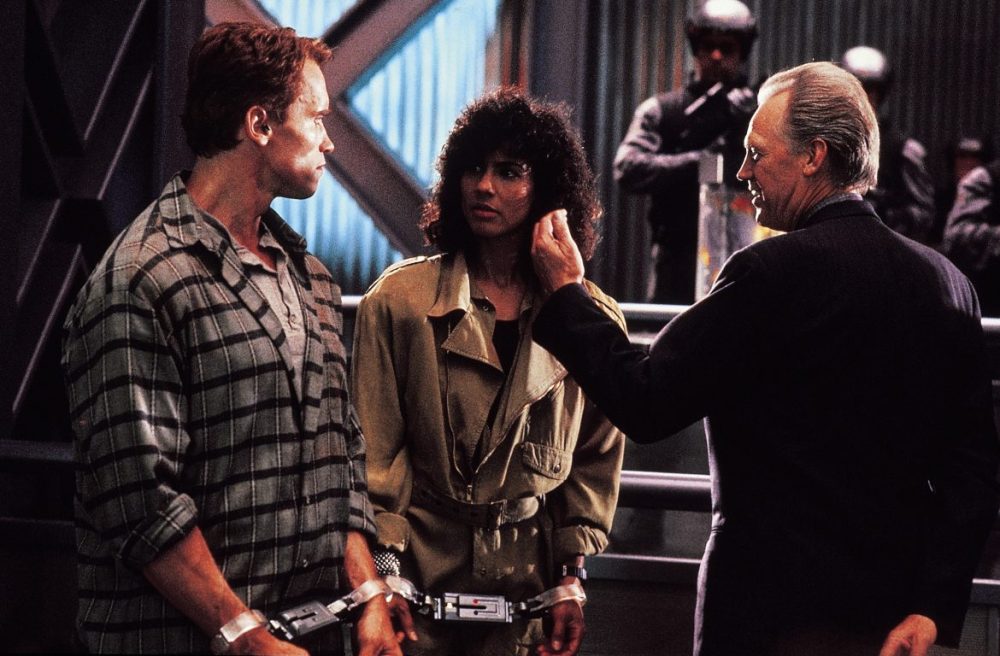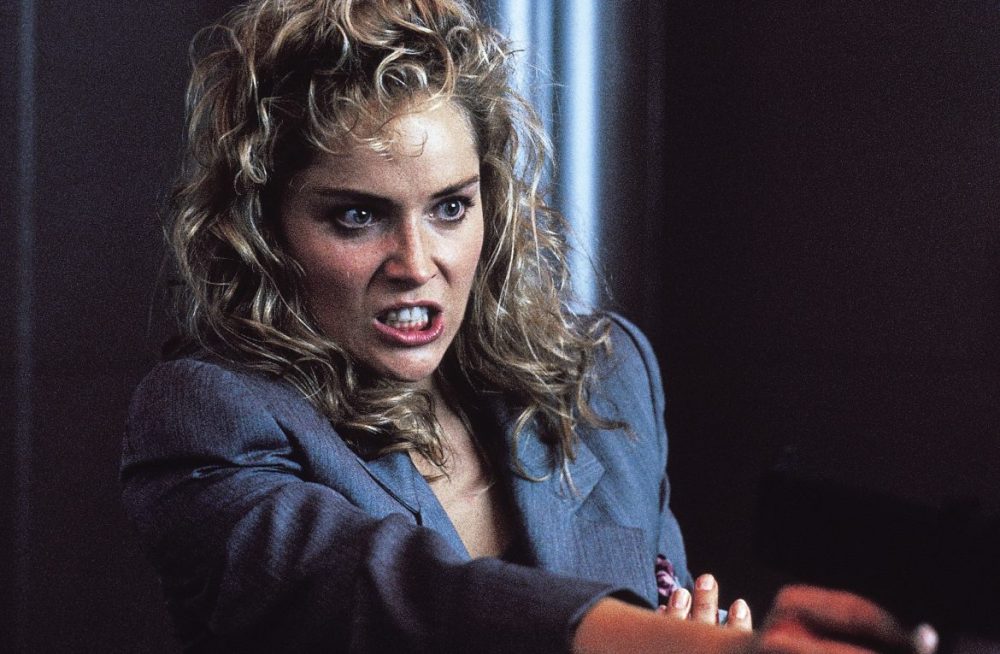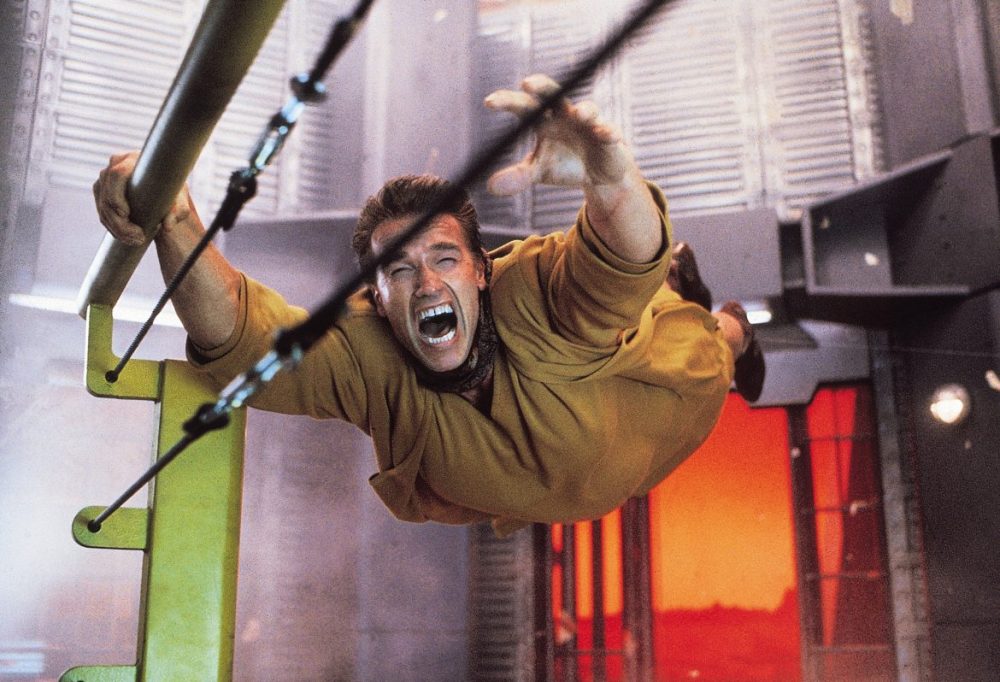TL;DR
Arnold Schwarzenegger stars in the iconic 1990 sci-fi thriller *Total Recall*, a mind-bending adventure about implanted memories and a journey to Mars. Praised for its relentless pace, groundbreaking practical effects, and Verhoeven's signature style, it remains a genre masterpiece that outshines its remake. The Studio S Blu-ray edition offers a treasure trove of documentaries, but be aware that the video and audio quality are a bit soft and muted. Dive into the enduring debate: is it all a dream or reality? Find out what makes this classic a must-watch.
Doug Quaid (Arnold Schwarzenegger) is plagued by dreams of Mars and resolves to undergo a memory implantation of a Martian vacation, rather than travel there physically. He engages the services of Rekall, but the procedure malfunctions, triggering a series of unforeseen events. Quaid finds himself pursued by unknown adversaries, his allies are revealed to be imposters, and he must journey to Mars to uncover the truth.

Total Recall exists in multiple versions, and upon its initial release in Sweden, it was heavily censored. Consequently, finding a complete, uncut version became a priority for many viewers. Director Paul Verhoeven is known for his unreserved approach to graphic violence, and Total Recall exemplifies this. Beyond its visceral content, it stands as a prominent science fiction film of the 1990s, rivaling Terminator 2 – Judgement Day. The film’s practical effects remain impressive, contributing to its enduring appeal. While some CGI is present, its seamless integration allows it to hold up remarkably well.

The collaboration between Verhoeven and Schwarzenegger proves highly effective, with each bringing out the other’s strengths. Total Recall maintains a relentless pace from beginning to end. In contrast, the 2012 remake starring Colin Farrell falls short of capturing the essence and impact of the original.

Studio S Entertainment is known for releasing classic films in the Swedish market with extensive behind-the-scenes content, a feature that extends to their edition of Total Recall. This release includes several newly produced, hour-long documentaries that delve into the film’s production. Furthermore, a documentary about the film company Carolco is included, providing significant value in itself.

The narrative of Total Recall continues to be debated: Is it a dream or reality? A compelling argument can be made for either interpretation, as the film presents clues and scenes that support both possibilities. The ending, therefore, remains open to interpretation. Viewers wishing to avoid a definitive resolution should exercise caution when listening to the commentary track, as Verhoeven explicitly reveals his intended interpretation at its conclusion.

While the Bluray edition boasts extensive bonus content, the transfer quality is somewhat lacking. Despite the “Digitally Restored” label, the image appears soft. The opening credits, in particular, exhibit signs of upscaling from a lower-resolution source. The audio, presented in DTS 5.1, suffers from a low mix and lacks dynamic range. This is a disappointing aspect of an otherwise impressive release.

Overall, the Studio S edition of Total Recall is still recommended. This 90s classic is essential viewing, and the comprehensive Bluray release compensates for the shortcomings in image and sound quality.

